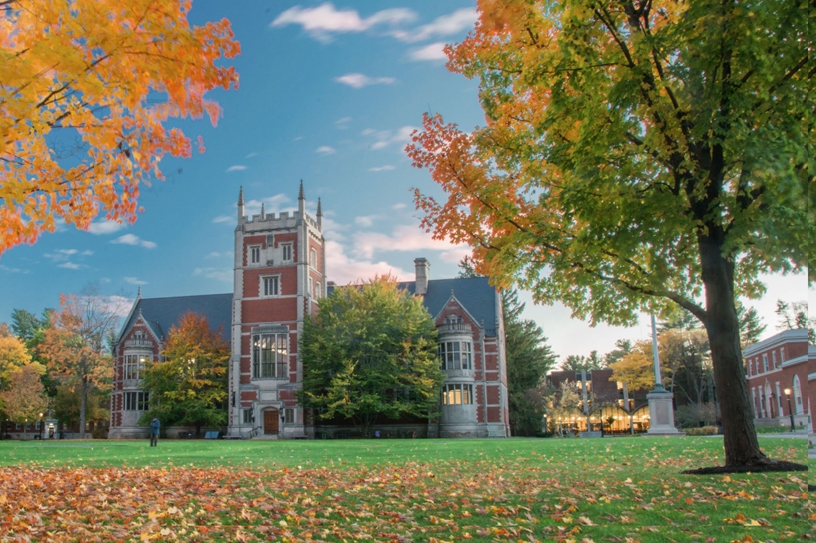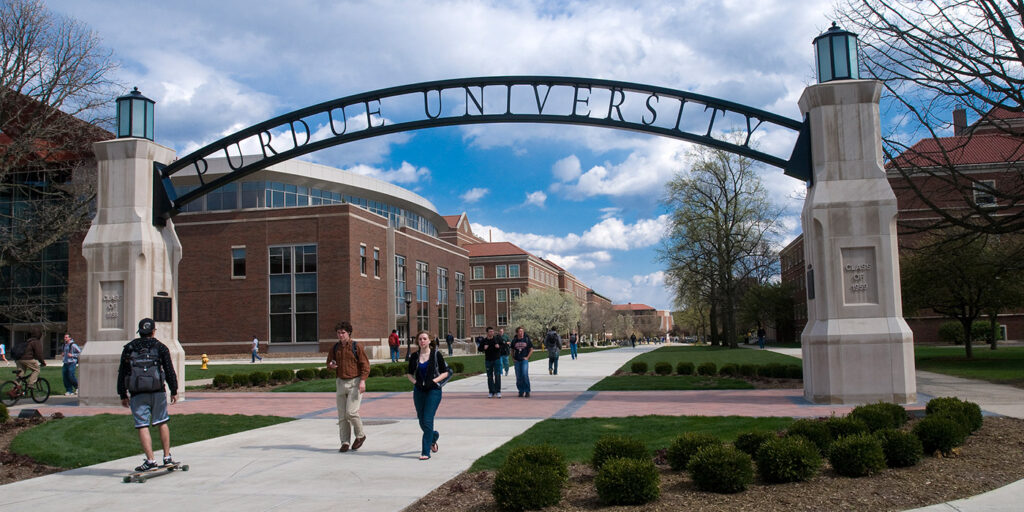First-year files: supportive learning environment at a rigorous liberal arts college
March 2nd, 2021It’s time for our next edition of First-year files! Today we introduce Bella, who attends Bowdoin College in the coastal town of Brunswick, Maine. Bowdoin is a small liberal arts college known for its rigorous academic culture and close-knit community.

Bella’s unique entry for our blog underscores the fact that some highly selective colleges can be quite responsive when it comes to learning support needs. At Bowdoin, enrolled students who need learning accommodations have also proved themselves to be exceptional scholars during their time in high school. While the supports offered are not comprehensive as at some other schools, it is wonderful to see such compassion and concern manifested for the individual needs of Bowdoin’s students.
We appreciate Bella’s vulnerability and willingness to share her experience. Her message about thriving in her college setting continues to support our motivation to find the right fit for each individual student.
Despite the challenges that COVID-19 has posed on college students—especially first-year students such as myself—my experience living at Bowdoin College was memorable and educational.
Because of Bowdoin’s small student body, I think that making friends was easier for me than it would have been if I went to a larger research university. The first couple days at Bowdoin were difficult because I had to acclimate to a life of constant COVID testing and quarantining from my peers: but, despite the isolation, I could always connect with students living in my hall or find someone to get mail with at Smith Union, which I think speaks volumes about the student culture of Bowdoin.
I’ve also developed relationships with many of my professors during my Scientific Reasoning in Biology, Queer and Trans Global Ethnography, Differential Calculus, and Introduction to Psychology courses that I took during the fall. I was pleasantly surprised at how passionate my professors were about the subjects they taught, as well as how willing many of them were to help me outside of class. As an example, after I got my grade back for my final exam for calculus last semester, my Math professor spent an hour and a half going over the problems that I missed with me. Had I gone to another college, this likely would not have been the case. But, at Bowdoin it isn’t unusual for professors to take extra time out of their day to assist their students. Although Bowdoin’s professors are incredibly supportive, it’s important to acknowledge that Bowdoin students have a large and difficult workload. Students who are passionate about learning should absolutely consider going to Bowdoin, but students looking to attend simply because of the school’s prestige should be careful when applying to Bowdoin, as a love of learning is intrinsic to Bowdoin’s students and school culture.
I chose to attend Bowdoin College in part because of their incredible disability services. Lesley Levy, the Director of Student Accessibility at Bowdoin, has gone above and beyond in providing me the accommodations that I need in order to succeed, and supports me both academically and personally. One time, my personal printer that I use for my accommodations wasn’t working and I contacted Mrs. Levy to ask if she had any suggestions as to how to fix it. She, without hesitation, emailed me to ask which hall I lived in, and drove directly to my hall: she picked up my printer and fixed it at her house that night, and returned it to me the next morning. Also, when I got declined to live on-campus in the spring, I was concerned about the amount of support I would receive for my disabilities, and Mrs. Levy provided me a laundry list of resources to use while studying remotely.
But, as with any college or university, there are some negatives. There is one negative worth mentioning, namely many international students do not feel supported. Many of my international friends told me that when they requested to be on-campus in the spring, their requests were denied. So, international students had to find a place to live in the United States because many of them were banned from going back to their home countries due to the pandemic.
Despite this, my experience at Bowdoin thus far has been overwhelmingly positive, and I would definitely recommend it to anyone who wants to live in an intellectual, encouraging and tight-knit community.
To test or not to test …
February 16th, 2021Challenges caused by the Covid-19 pandemic continue as SAT, ACT and SSAT testing sites are a concern for safety and spread of the virus. Many testing centers have limited capacity or have shut down altogether, sometimes with little to no notice.
As a result, many colleges and boarding schools adopted test-optional admission policies this year and while some have announced extensions of the policy, many schools and colleges are still considering whether to remain test-optional for next year’s application cycle. The lack of certainty leaves a lot of younger students wondering whether to test or not.

This is a good question and carries a lot of weight for some students. The simple answer is, in our opinion, it depends.
- Students who do well in school but have a history of standardized test results not matching their in-school performance need not invest time in testing or test-prep IF the colleges or boarding schools they plan on applying to will be test-optional in their application cycle.
- On the other hand, students who have a history of strong standardized test results may see benefit from including test scores in their applications, so preparation and testing may make sense for them.
The article linked below from US News does a great job explaining the ins and outs of test-optional for students pondering this decision. Although written with college in mind, boarding school families will find some relevance.
We have only one hesitation in sharing this article, as it ends with encouragement for all students to test. As you see above, this is a philosophy with which we differ.
Article referenced below from US News, written by Josh Moody, published on December 18, 2020
Navigating Test-Optional Admissions Amid COVID-19
WHEN THE NOVEL coronavirus began to spread throughout the U.S., it upended numerous facets of higher education such as in-person instruction, the college admissions cycle and entrance exams such as the ACT and SAT.
Test-makers canceled previously planned sessions of the ACT and SAT and shifted those exams to later dates, though many of those sessions had to be scrapped due to pandemic-related concerns. In response, many colleges reacted to the pandemic by removing testing requirements for applicants and announcing test-optional pilot programs, with their length varying by school.
“I think it is a good thing for students, but it does require students to work a little bit harder, and to learn what these different policies might mean for them,” says Ginger Fay, director of independent educational consultant engagement at Applerouth Tutoring Services in Atlanta.
Since the pandemic hit, the number of colleges requiring the ACT and SAT has dramatically decreased, notes Robert Schaeffer, interim executive director of FairTest, which has long fought to reduce the role of standardized testing in college admissions.
First-year files: STEM-focused university
February 2nd, 2021One of my favorite parts of the year comes when we catch up with former advisees who are thriving, and willing to lend insights to help younger students as they ponder college choices. The “First-year Files” concept was developed as a way to facilitate this kind of first-hand knowledge sharing within our Shrop Ed community. Nothing is better than candid insight from someone who is one year ahead in this journey.

In today’s edition of “First-year Files,” we hear from a student attending Purdue University, a large, public, STEM-focused university in West Lafayette, IN. As we know, the first-year experience was more challenging than ever, but Ryan discusses how Purdue facilitates a safe environment, without compromising the rigorous group learning environment for which they’re known. Purdue University’s president was considered somewhat audacious when announcing over the summer that he wanted students on campus this fall. As we see, with careful plans in place, the college experience can still feel relatively normal. Thank you, Ryan, for sharing your experience with us!
In the coming weeks, you will hear from additional first-year college students, and we hope that each of you reading will find a few useful kernels of wisdom that will help in your journey.
Hello, my name is Ryan. I am a freshman at Purdue University, going into my second semester, and planning to study Computer Engineering.
I have absolutely loved my time at Purdue in-person. Even with COVID-19 restrictions in place, it was still a wonderful experience to be able to go to campus and enjoy a modified version of college life. Of course, Coronavirus has made certain aspects of college more challenging, particularly the social aspects (meeting the members of your dorm floor, or your other classmates in general). But like the staff, the students of Purdue all have done their best to adhere to the protocols set in place to protect everyone on campus. Everyone has pitched in, and everywhere you looked indoors, and even most times outdoors on campus, masks were being worn. This plus other endeavors by the university, such as the installation of miles of plexiglass for protection in the classrooms, made me feel very safe on an already safe campus.
Regarding academics at Purdue, the classes are certainly rigorous, as one would expect at a college. Unlike some other top engineering colleges, however, the environment is collaborative, not cutthroat. For example, my engineering course was completely based around working with your team to complete projects and included peer reviews with other teams to better your project. My required written communications course was also based around peer reviews with an assigned group of students allowing you to know their writing style. And both my Calculus I and Chemistry classes fostered an environment that encouraged working together to solve the assignments.
There are three lessons I learned from my first semester that I would like to share that can be applied to any college experience. First off, join a club, organization, or an extracurricular class that makes sense for you. In Purdue, there are also optional Learning Communities (or LCs, as we like to call them) you can join that put people with similar interests in the same dorm. I suggest this because it will give you a chance to meet new people and make friends quickly. You are just about guaranteed to find at least one person you get along with and enjoy similar things when you join a community that is formed for a particular purpose you enjoy. Consider joining a band or orchestra, the chess club, the rowing team, or if you are attending Purdue, an LC, and I’m positive you’ll find “your people” there.
Second, be prepared to step up your academic game. As I mentioned, the classes are highly rigorous, and while I am sure you have heard this 1,000 times, I am here to reinforce that college is academically at a different level than high school. You will be discovering and working with new study habits, new study environments, and new, difficult material, which segues into my next point: the material you will be learning is difficult, so do not fall behind or get complacent.
I have heard horror stories of people getting too complacent with their work or procrastinating too much and getting behind in their assignments. It is a deep hole to dig yourself out of, and not a fun ride either. To help avoid this, do not let yourself be distracted while working, and when you are not doing work and have some free time, make sure to limit the amount of time you spend during your free time. Also, do not let yourself get complacent with your position in your classes. Most classes at Purdue offer what is called SI, or Supplemental Instruction, which adds an extra level of academic support outside of your class recitations. I urge you to attend SI (or the SI equivalent at your college) for your classes, regardless of whether you are passing with an A- or failing (hopefully, it will be the former).
Overall, regardless of what college you will be attending, my three major points for you are that you should find “your people” at college, prepare to adapt to the new, difficult level of work in college, and get academic help before you are in trouble. Armed with those tips, I hope that you will be prepared to transition into your first year of college and onwards!
Good luck college hunting!
Make an impact through summer experiences
January 19th, 2021Does anyone else think this may be a good time to dream about days that are warmer, sunnier and lighter….summer? A hiatus from the early mornings, school schedules and homework; sounds wonderful, right? For high school students preparing for college, your summer matters. Colleges want to know you as a whole person, not just how you spend your time during the school year but also what you do in your free time. This break from school offers the perfect opportunity to explore your passions, be thoughtful and make an impact.
But how?

In the article linked below from our friends at College MatchPoint in Texas, you will learn how to utilize your summer doing what you love while also taking it “up a notch” to benefit your personal growth and development. A secondary benefit is that this will provide interesting information to share in the college admissions process. College MatchPoint’s summer planning guide shares strategies to help you show initiative, challenge and impact, all while considering how to stay safe during this pandemic.
Article referenced below from College Matchpoint
GUIDE TO SUMMER PLANNING 2021 EDITION
For many of today’s college-bound high school students, summer is
no longer nine weeks of total relaxation, but rather an opportunity
to spend time actively working, learning new skills, or diving deeper
into an area (or areas) of interest. Summer is the perfect time to
take calculated risks that push students into unfamiliar situations
that build skills and enrich life experiences. Planning is the key to
finding the most rewarding experience.
We encourage students to consider what they enjoy, what areas they
could improve in, and what their goals for the future are in order
to decide what to do over the summer. With any activity students
choose to participate in, there should be opportunities to help
them learn more about themselves by expanding their interests,
gaining new experiences, or taking on responsibilities. Whether or
not it’s going to help in the college process should be secondary to
having a good growth experience.


